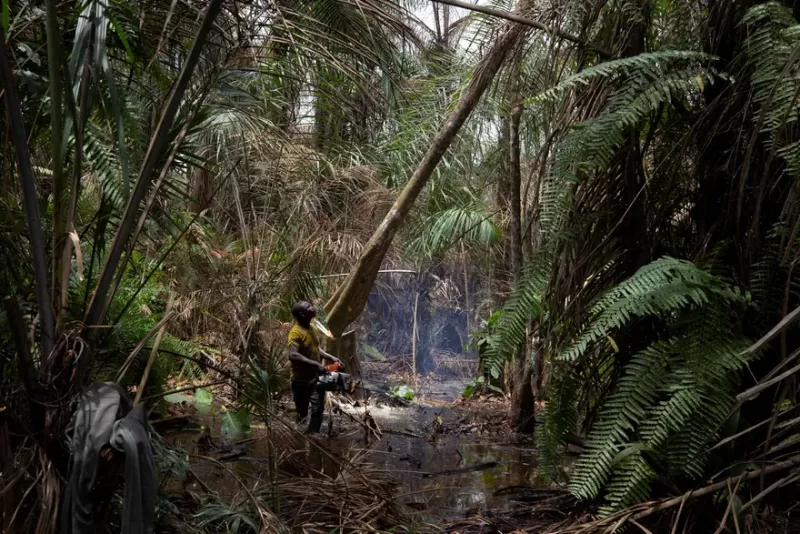Rafts made of logs transported from around the country are gathered in the Lagos lagoon, near the Ebute Metta sawmill.
From 2001 to 2021, Nigeria lost 1.14 million hectares of forest, equivalent to a 11% decrease in tree cover and equal to 587 million tonnes of carbon dioxide emissions, according to Global Forest Watch. Cutting down trees for logging, opening up farmland or to feed energy demand for a growing population is putting pressure on Nigeria’s natural forests
Komiyo Ikuejamoye, a logger, fells a tree with a chainsaw in Ipare, Ondo state
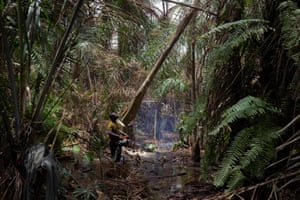
Ikuejamoye measures a felled tree in the forest
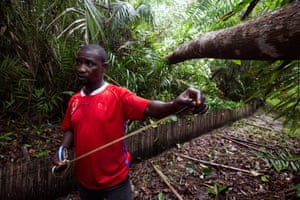
Ikuejamoye cuts a felled tree as Bayo watches
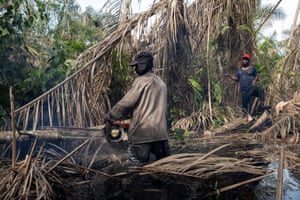
Egbontoluwa Marigi pulls a log through the flooded forest floor
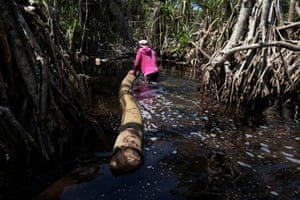
Hunters carry monkeys they have just killed in the forest

Komiyo Ikuejamoye, Bayo and Kayode Ikuejamoye gather after a day’s work to share a meal of rice and beetle pupae they collected from the forest

Komiyo Ikuejamoye arranges logs on the river
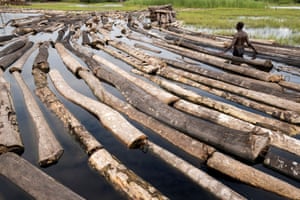
Ikuejamoye takes a rest from moving logs from the forest floor to the river

Rafts made of logs transported from Ondo state and other parts of the country are gathered in the Lagos lagoon, near the Ebute Metta sawmill

Ikuejamoye talks with local people as he pulls his logs through the river

Egbontoluwa Marigi paddles his logs out of the flooded forest floor on to the river in Ipare. ‘During the time of our forefathers, we had big trees but sadly what we have now are just small trees and we don’t even allow them to mature before we cut them,’ he says
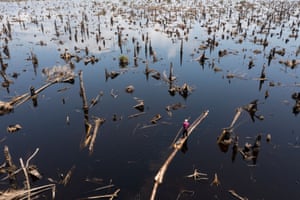
Elewuro, the captain of the tug boat, controls the line of rafts behind him

Loggers sit in a shelter built on top of floating rafts of logs that are being transported to Lagos
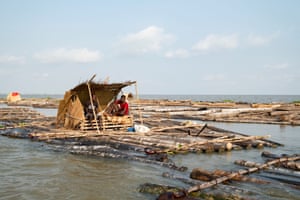
A tug boat pulls a line of log rafts in Lagos
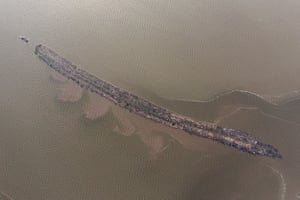
Topics
